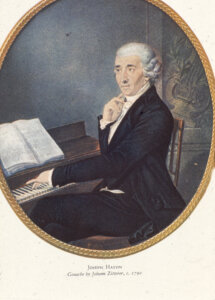Why a German anthem shouted at the US Open enraged one of the world’s top tennis players
When Alexander Zverev heard a shout of ‘Deutschland Über Alles,’ he understood the ugly history behind those words

Germany’s Alexander Zverev in a more triumphant moment at the U.S. Open. Photo by Getty Images
German tennis player Alexander Zverev, ranked 12th in the world, stopped the U.S. Open because a fan was yelling a line favored by Hitler.
“He just said the most famous Hitler phrase there is in the world. It’s unacceptable. This is unbelievable,” Zverev, 26, said. “He started singing the anthem of Hitler that was back in the day. It was ‘Deutschland über alles’ and it was a bit too much.”
“Deutschlandlied,” or the “Song of Germany,” was the official national anthem of Germany from 1922 to 1945, of West Germany from 1950 to 1990, and then of reunified Germany from 1990. But the most recent version omits the first verses, which feature the infamous line “Deutschland, Deutschland über alles” or “Germany, Germany above all.”
When Zverev heard the phrase, he understood the history behind it.
“I think me being German and not really proud of that history, it’s not really a great thing to do, and I think him sitting in one of the front rows, I think a lot of people heard it,” Zverev, who is from Hamburg, said. “So if I just don’t react, I think it’s bad from my side.”
As the fan screamed about Germany “above all else in the world,” Zverev immediately went to the umpire.
“It’s unacceptable,” Zverev, 26, told umpire James Keothavong, according to the New York Post, which reported that the umpire “instantly turned around to ask the fan to reveal themselves.”
The individual was identified, then escorted out of the arena.
The anthem’s history

The melody of the German national anthem was composed in 1796 by Joseph Haydn, who was Austrian. It was first performed in public in 1797 in honor of the birthday of Holy Roman emperor Francis II — and back then, it was called “Kaiserhymne” or “Emperor’s Hymn.” The first lines were “Gott erhalte Franz den Kaiser, Unsern guten Kaiser Franz!” or “God preserve Francis the Emperor, Our good Emperor Francis!”
Haydn kept working on his now-famous melody, which was incorporated into his Emperor Quartet.
The lyrics adopted the name of each succeeding emperor, but the tune remained in official use until the empire collapsed in 1918.
Though Austria-Hungary fell away, the song didn’t. In 1841, the nationalist poet and professor August Heinrich Hoffmann von Fallersleben wrote new lyrics for Haydn’s melody, urging unity for all the various parts of Germany.
Over time, Hoffmann’s song became more popular. On Aug. 11, 1922, the Weimar Republic made the song and its first verse the German national anthem.
Hitler’s Spin on the anthem
In the Nazi era, this poem that originally called for German unity was reinterpreted as a call for German domination over all others — including, of course, Jews.
It was this idea of “above all” that appealed to Hitler, who believed in a “master race,” and it is this aspect of the anthem that Zverev apparently reacted to at the U.S. Open.
Germans, however, are still attached to “Deutschlandlied.”
After the war ended, Chancellor Konrad Adenauer asked to use the song as the national anthem in 1952, in West Germany. The Allies agreed on the condition only the third stanza of the song — which describes “unity and justice and freedom, for the German fatherland’” — be used.
After the Berlin Wall fell, and Germany reunited, that piece of Hoffman’s poem with Haydn’s melody became the new anthem. Today’s unified Germany uses the poem’s third stanza as its anthem — but to Germans who know their own history, there is a world of difference between the first stanza and the third.
That first line — “Deutschland über alles” — remains associated with the darkest chapter in German history, and the dangers of believing in German superiority. Maybe Zverev’s dramatic reaction, and the international coverage of the incident, will remind the world that words have consequences.
















